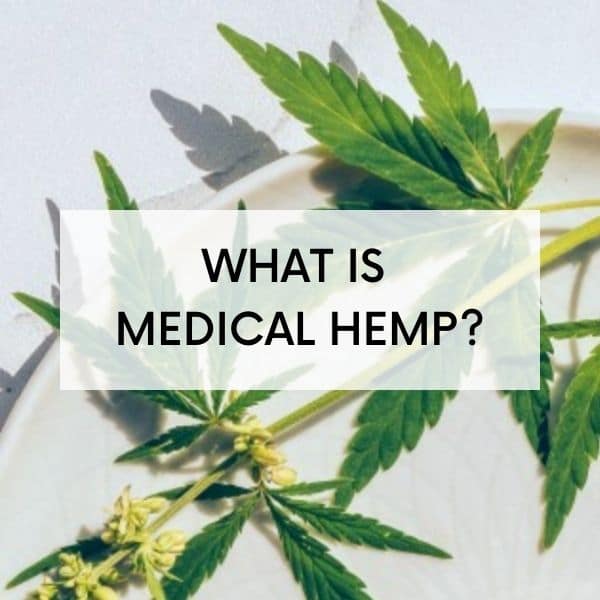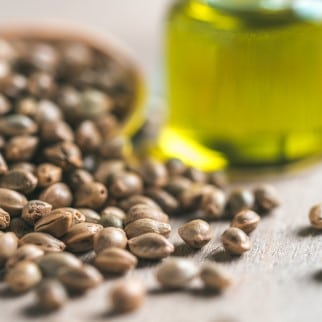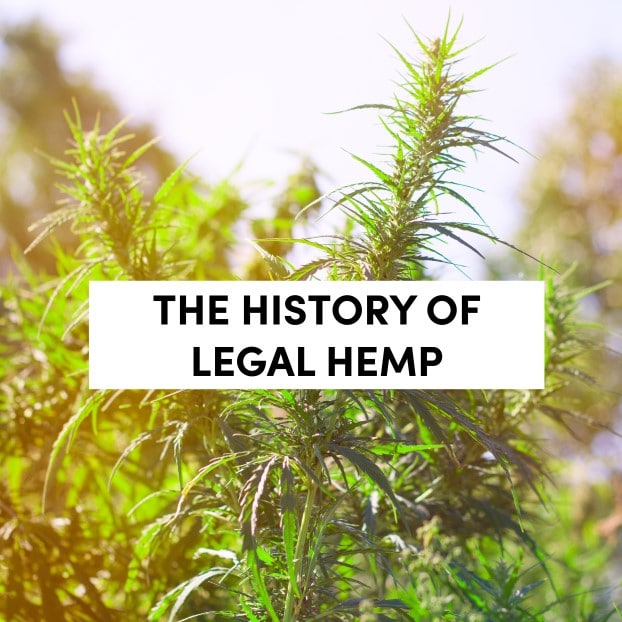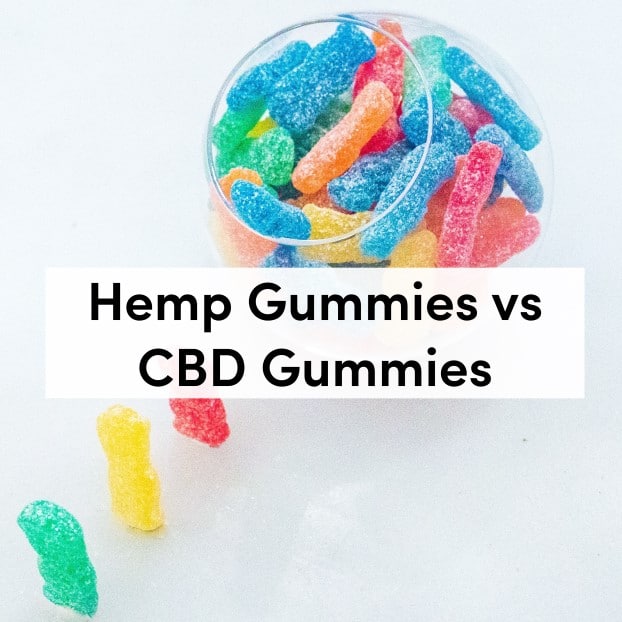What Is Medical Hemp?

Posted on September 23rd, 2021
Medical hemp describes raw or extracted hemp products that you’re prescribed to treat a diagnosed and viable medical condition. Until recently, we’ve largely disputed the health benefits of hemp. Of course, that’s because the cannabis plant is listed as a controlled substance. And that limited research into hemp’s potential for medical uses.
Today, hemp is legal across the United States. And many states allow medical marijuana use. As a result, we’re seeing greater research and many confirmed health benefits.
What are the Different Types of Medical Hemp? 
Unlike marijuana, medical hemp isn’t commonly used in its raw, natural form. There are two types of medical hemp. Both have different properties and benefits:
1. Hemp Seed Oil
We extract hemp seed oil by pressing the plant’s seeds. These seeds contain little to no cannabinoids. So they don’t deliver the psychoactive properties of THC or the same health benefits of CBD, since they’re both found in cannabis leaves, flowers and stems.
Still, hemp seed oil has its own benefits. These seeds have high nutritional value and contain essential fatty acids. They’re also high in protein and a wide variety of vitamins and minerals.
Also, we’ve associated hemp seed oil with better heart health, since it acts as a vasodilator (dilates arteries for increased blood flow). The oil may be beneficial for treating dry skin, due to its high concentration of essential fatty acids and vitamins.
Even better? Hemp seeds may alleviate the symptoms of PMS (Pre-menstrual Syndrome) and menopause, by inhibiting the production of prolactin. (That’s the substance responsible for emotional and physical symptoms of both conditions.)
Whole hemp seeds are high in fiber, which aids digestion and is essential for good digestive health. But remember, hemp seed oil is not the same as CBD oil. So it doesn’t offer the same benefits.
2. CBD Oil
We extract CBD oil from hemp leaves and stems through a variety of different processes. You can take the oil in different forms, including edibles such as CBD gummies and chewing gum. You can also try atomizing or vaping oils.
Many people prefer topicals in the form of creams, lotions or oils applied directly on the skin. Finally, some CBD comes in tablet or pill form, for easy swallowing.
CBD topical oils and inhalants are most effective, since you absorb them directly through your lung tissue or skin. Edibles, tablets or pills forst pass through your digestive tract. And that can result in slower or diminished results.
However, the type of CBD oil you choose should depend on the type of health condition you’re addressing. For example, you’d choose topical application for muscle or joint pain. But if you’re living with anxiety, edibles may be a better choice.
What Is The Difference Between Medical Marijuana And Hemp? 
We produce medical marijuana from the marijuana plant and medical hemp from the hemp plant. Both marijuana and hemp are part of the same family of cannabis plant. But there’s one major difference – tetrahydrocannabinol.
Tetrahydrocannabinol, or THC, is a chemical compound found in all cannabis plants. It’s responsible for the cannabis’ psychoactive properties, and the sensations of getting “high.” THC is also the reason that cannabis spent years as a controlled substance.
The hemp plant contains only trace amounts of THC, less than 0.03%. These negligible amounts can’t result in psychoactive effects. On the other hand, marijuana contains much higher concentrations of THC and therefore results in feelings of euphoria or getting “high”.
How Does Medical Hemp Work?
The endocannabinoid system (ECS) in the human body is a relatively new discovery. This system is responsible for regulating a wide range of different bodily functions inhibiting or stimulating the release of certain chemicals in the body and how receptors react to these chemicals. That includes neurotransmitters and how they interact with neurons and the greater Central Nervous System (CNS).
The ECS consists of two types of receptors, CB1 and CB2. CB1 receptors are primarily located in the brain and CNS. CB2 receptors are located mainly in the immune system, digestive tract and PNS (Peripheral Nervous System). The body produces cannabinoids (called endocannabinoids) that interact with the CB receptors in the ECS to perform certain regulatory functions.
These cannabinoids also exist in greater concentrations in the cannabis plant (called phytocannabinoids) and interact with ECS receptors. THC interacts mainly with CB1 receptors in the CNS, resulting in psychoactive effects. But CBD interacts primarily with the CB2 receptors, helping regulate immune responses and other functions in your body.
Hemp has high CBD concentrations, so it offers all the health benefits of cannabis without the psychoactive side-effects. That’s why we think medicinal hemp and CBD is mostly responsible for cannabis health benefits.
What Are The Health Benefits Of Medical Hemp?
To date, medical marijuana is only included in one approved medication for treatment-resistant epilepsy. This is due to the anti-seizure properties of CBD. Other potential health benefits of hemp and CBD are still being researched and awaiting FDA approval. But they include:
– Anti-emetic to relieve nausea and vomiting.
– Anti-inflammatory to reduce swelling that results from a response to injury or illness from the immune system.
– Relief from chronic pain, headaches and migraines.
– Treatment for mental health disorders such as anxiety, PTSD (Post Traumatic Stress Disorder) and depression.
– Assist in substance abuse rehabilitation and recovery.
– Treat sleep disorders.
– Reduce or delay tumor growth in cancer patients.
– Treatment for allergies, asthma and other lung or respiratory health conditions.
– Treatment of neuro-degenerative disorders such as Alzheimer’s Disease, Parkinson’s Disease and Multiple Sclerosis (MS).
– Anti-seizure properties to treat epilepsy and other seizure disorders.
These health benefits are primarily evidence-based. In other words, the support for the findings that hemp is beneficial is based upon the evidence produced in animal studies and reports from hemp users partaking in surveys. Scientific studies to find exactly how hemp and CBD affect the ECS, PNS and CNS in order to produce these health benefits are underway.
Uses and Recommendations
Medical hemp seed oil has no proven negative side-effects or consequences and therefore dosage is largely dependent on need. The oil can be applied topically (directly to the skin), taken as a supplement or the seeds can be consumed whole. The oil can also be added to food or beverages.
When it comes to CBD, dosage and uses can be complicated. We recommend starting with the lowest dose and increasing until you feel your desired effects. If you experience any side-effects, lower your dose or discontinue use immediately.
Medical hemp is widely available from a variety of different sources. However, to get the greatest benefit from the products, opt for high quality pressed hemp seed or CBD oil.





